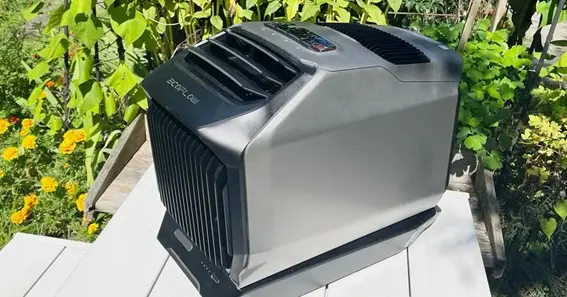As temperatures rise, staying cool becomes a priority, especially in spaces where traditional air conditioning systems aren’t feasible. Enter the mini portable AC, a compact and efficient solution designed to provide personalized cooling wherever you need it.
What Is a Mini Portable AC?
A mini portable air conditioner is a compact, mobile device that delivers cool air to small areas. Unlike traditional air conditioning units, these devices are designed for personal use, making them ideal for bedrooms, offices, or even outdoor activities like camping. They typically operate by drawing in warm air, cooling it through a refrigeration cycle or evaporative process, and then releasing the cooled air back into the environment.
Benefits of Mini Portable ACs
- Portability: Lightweight and often equipped with handles, these units can be easily moved from one location to another.
- Energy Efficiency: Designed to cool specific areas rather than entire rooms, they consume less power, leading to potential energy savings.
- Ease of Use: Most models are user-friendly, requiring minimal setup without the need for permanent installation.
- Cost-Effective: Generally more affordable than installing central air systems or purchasing larger AC units.
Top Mini Portable AC Models in 2025
Here are some of the standout mini portable AC units available:
- Midea Duo Smart Inverter Portable Air Conditioner: Known for its outstanding cooling abilities and quiet operation, this unit is also Wi-Fi enabled, allowing for remote control via smartphone apps.
- Black+Decker BPP08WTB: Praised for its compact design and efficient cooling, this model offers a competitive price point without compromising on performance.
- Whynter ARC-1230WN: This unit stands out for its excellent cooling power and user-friendly features, making it a top choice for many consumers.
Factors to Consider When Choosing a Mini Portable AC
When selecting the right mini portable AC for your needs, consider the following:
- Cooling Capacity: Measured in BTUs (British Thermal Units), ensure the unit’s capacity matches the size of the area you intend to cool.
- Energy Efficiency: Look for models with energy-saving features to reduce electricity consumption.
- Noise Level: Some units operate more quietly than others; check decibel ratings if noise is a concern.
- Additional Features: Features like adjustable fan speeds, timers, remote controls, and air purifiers can enhance user experience.
Maintenance Tips for Mini Portable ACs
To ensure optimal performance and longevity:
- Regular Cleaning: Clean or replace filters as recommended to maintain airflow and air quality.
- Proper Storage: Store the unit in a dry place during off-seasons to prevent mold and mildew growth.
- Check for Leaks: Periodically inspect the unit for any refrigerant leaks or drainage issues.
Conclusion
A mini portable AC offers a convenient and efficient way to stay cool in specific areas without the need for extensive installations. By understanding their benefits, features, and maintenance requirements, you can select the perfect unit to meet your cooling needs.
FAQs
1. Can a mini portable AC cool an entire room?
Mini portable ACs are designed for spot cooling and are most effective in small areas or for personal use. Cooling an entire room may require a larger unit.
2. Do mini portable ACs require venting?
Most mini portable ACs do not require external venting, making them versatile and easy to set up in various locations.
3. How much electricity does a mini portable AC consume?
Consumption varies by model, but generally, mini portable ACs are more energy-efficient than larger units due to their targeted cooling approach.
4. Are mini portable ACs noisy?
Noise levels differ among models. It’s advisable to check the decibel rating if noise is a concern.
5. Can I use a mini portable AC outdoors?
Yes, many mini portable ACs are suitable for outdoor activities like camping, provided there’s access to a power source.










